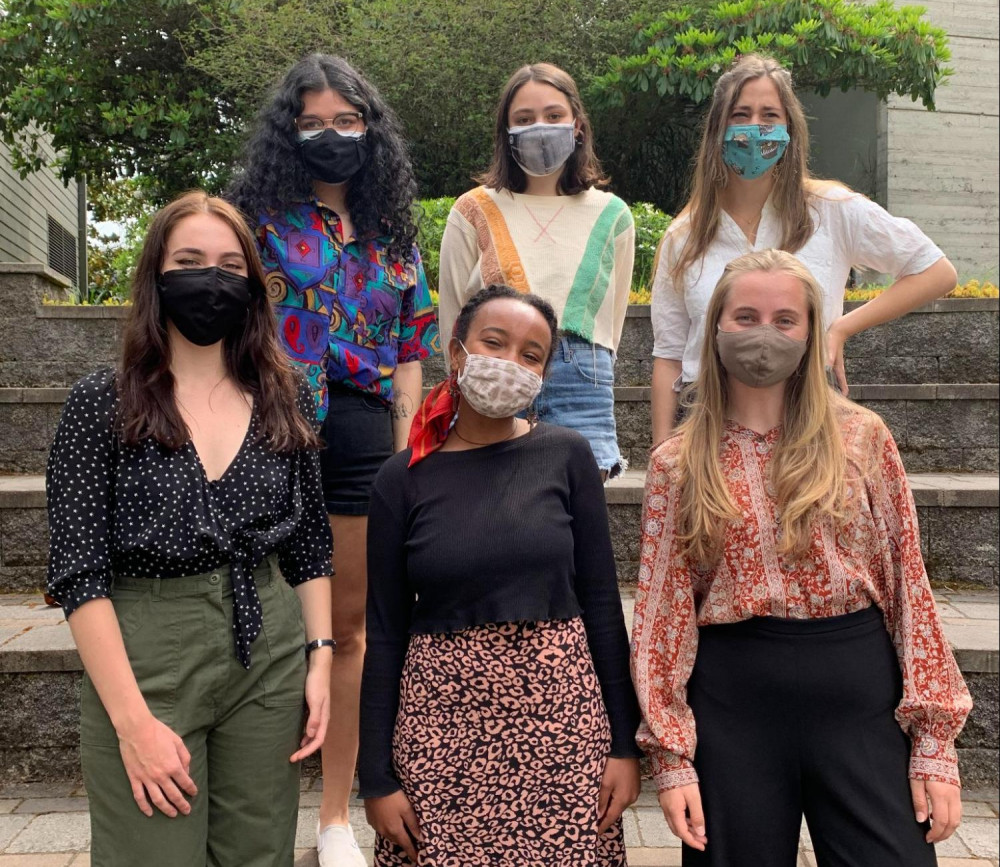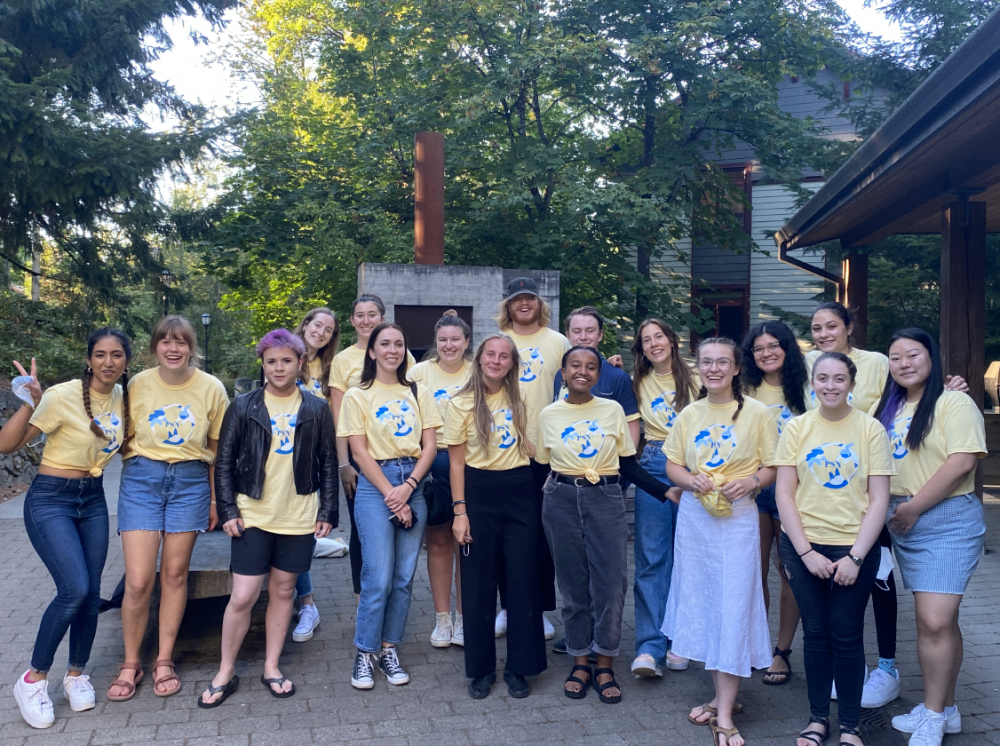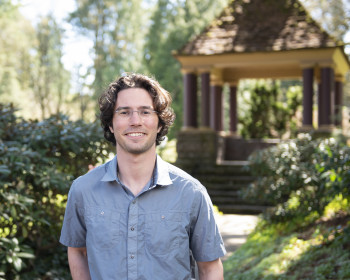Peer to Peer: The Pioneer Support Network
by Franchesca Schrambling BA ’22
Now more than ever, as the COVID-19 pandemic lingers, connection and communication are of the utmost importance. This fall marks the launch of the L&C Pioneer Support Network (PSN), a student-led effort designed to support mental health and well-being, with an emphasis on challenging the stigma around mental health. In weekly peer-facilitated group meetings, trained student leaders provide a safe space for connection, belonging, and support.
PSN's current directors as well as group leader Kamila Samman.
“We want the new network to be a pillar of support in the community,” said Robson. “Because who else better understands going to L&C than other students?”
In their research, Robson and Barnes discovered the work of The Support Network, a national nonprofit. “We believed its model of peer-to-peer support, which had been developed for large public universities, could be applied and adjusted to L&C,” said Barnes. The college soon entered into a formal agreement with the nonprofit.
Anchored in the new Center for Community and Global Health, which aims to promote health and healing in various forms, PSN accompanies the health studies minor, pre-health programs, and multiple community partnerships.
This new effort also complements the existing resources and offices on campus that work to improve and support the overall student experience at L&C. The Division of Student Life focuses on academic & experiential learning, diversity, leadership, and wellness, inside and outside of the classroom.
“Students have always been involved as Residential Advisors (RAs), Confidential Advocates, and as Great Expectations Peer Mentors for the Office of Inclusion and Multicultural Engagement (IME), but there was an interest on both the administrative and student level to establish a student-run peer collective,” said Robin Holmes-Sullivan, vice president of student life and dean of students. “The goal is to establish a robust peer collective of 200 students that is intentional about training and community.”
PSN leaders are trained in a semester-long practicum course. Under the guidance of Kathy Holmes-Sullivan, a licensed clinical social worker, they develop the peer support skills needed to facilitate small-group interactions. They are not trained counselors, nor do they offer therapy, but they are trained to be attentive to their groups, as well as to recognize any need for referrals. During the annual leader retreat, additional training equips leaders with an opportunity to practice confidentiality, role playing, and safe peer support.
Jerusha Detweiler-Bedell, professor of psychology and program director for the Center for Community and Global Health, believes in the long-term potential of the network: “Each year, we’ll have four to five student directors, trained group leaders, and group members. The vision is that some members will want to become leaders, and leaders will become directors, providing sustained leadership over time.”
PSN group leaders and directors attending their August 2021 retreat.
Along with fellow codirector Ruth Makonnen BA ’22, Boselova commented: “We want this to be a space for everyone. Whether that’s helping first-years transition to college life and navigate stress, or giving older students a chance to engage in the larger community and interact with new connections.”
Beginning in late September, groups of five to eight members, along with two coleaders, started meeting, following the Support Network’s blueprint. Over time, these groups hope to reclaim the term “mental health” as essential to well-being.
“The Pioneer Support Network helps students know they’re not alone in their struggles. There’s a community ready and willing to welcome them,” said Jackie Meade BA ’22, a psychology major serving as the current marketing and outreach director. Availability of counseling services, as well as barriers surrounding counseling, can be challenging for students to overcome. “We want to increase accessibility to safe spaces for group talk on campus and foster a sense of belonging.”
More Newsroom Stories
Public Relations is located in McAfee on the Undergraduate Campus.
MSC: 19
email public@lclark.edu
voice 503-768-7970
Public Relations
Lewis & Clark
615 S. Palatine Hill Road MSC 19
Portland OR 97219

